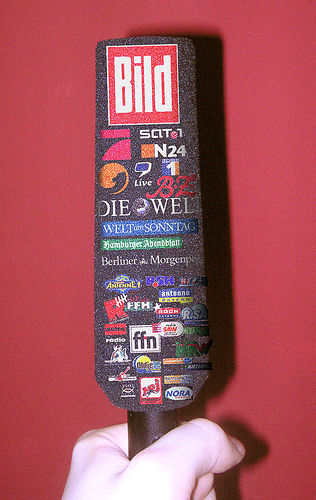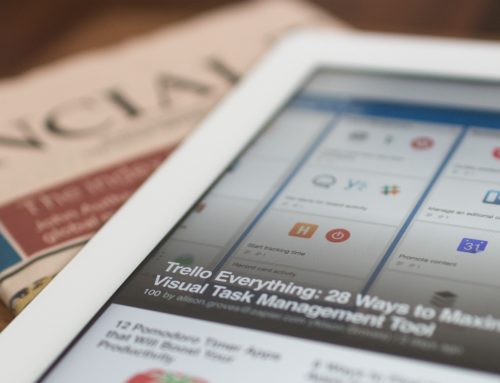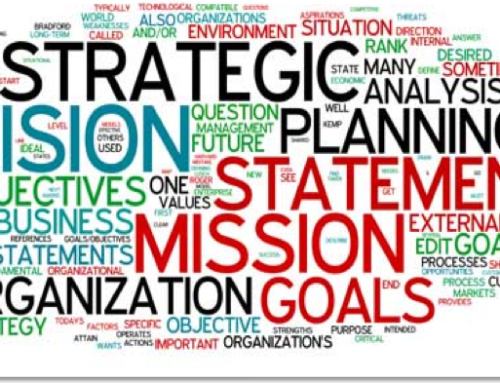Guest Post by Howie Goldfarb
This is Part 1 of a two-post series
I have a client – a gourmet dessert brand – that considers me its Director of Marketing.
So I was asked to interview six PR pros who would work to expand the brand and product exposure, primarily from a publicity point of view. (For your frame of reference, I’m based in upstate New York and my client is in Los Angeles.)
I did reference Gini Dietrich‘s blog post of what to look for in a PR pro/agency when hiring one. After we chose one, it did not go very well. And we had to let them go and we hired the person who was runner-up.
Guess what? So far they’ve turned out very well. (Part 2 of this post will be what went wrong with Numero Uno and what could have been done to prevent this from not working.)
Here’s what we were looking for and tips on rocking the interview:
1. Is location important?
We preferred pros local to Southern California, so that they could attend some events to get a feel for the brand, but it was not required. I lived in Los Angeles and Orange County for 17 years. I interviewed people around the US with only two of the six in Southern California.
Tip: Think of what your potential client does for their business. It’s possible location is important. Sometimes it is not. If you are not local, tell me how you think we can work together?
2. What is your ability to scale?
We were looking for someone who could get the client placed in national publications as well as local press outlets like newspapers, to-do papers, community outlets, etc. So if they hadn’t done national publicity, they needed to explain how they intended to execute this. I had been given a test drive of Vocus which some of the applicants used. Four of the six told me they’d used such a platform, which I gave them points for.
Tip: I have many years of direct B2B sales experience. If you don’t have the contacts needed for my client’s type of business, tell me how you accumulated the ones you do have.
3. What were we seeking?
Experience in premium consumer food products, or related experience. That is the industry/niche. If you’re coming to me, I am going to Google your name, your business, and see what is online about you, or what you have done in PR thus far.
Tip: If you don’t have experience with something related to my client, I want to see a representation of the type of work you have done, or with similar target publications or local press.
Very important: Google yourself! See what comes up. Try not to have anything that is polarizing in whatever responses get returned. If I see your “baby seal-hunting license,” or that you are the 2011 Beer Pong Champion of the state of Oregon, you risk losing an opportunity.
In fact, I had some issues with some of the things the chosen PR person had been involved with, but they were separate from what they would be doing for us. I told my client, and they during the interview they were good enough to win, with location being the deciding factor. But this person later lost the account. As Gini would say, always obey your gut.
4. I want a story.
What is your vision for the client? How do you view their product? What will your strategy be? Have you been successful with this strategy? If not, sell me on it.
Tip: You had better research your potential client. Check their website. See what comes up from Google. What do you think their story is, at least in a general sense?
Note: I had some good responses for this. One even gave a PDF presentation.
Ask yourself: Who are you talking to? The owner? Or me, the professional marketer?
- If it’s the owner, sell your vision. They don’t care about platforms or the nuts and bolts of the operation. But have the back-up info to prove you can execute the vision.
- A marketer or salesperson wants to see you have the strategy as well as the vision. How are you going to pull this off?
Again, think of what your pitch says. If it says you are a social media whiz (three claimed this), and then you are interviewing with me, you had better be one or you will be outed. Be prepared to talk rationally about these things, so your potential client doesn’t think you are trying to pull the wool over their eyes.
And research me. Did you know that I have many friends and connections in the PR world with whom I could check to make sure you were being on the level with me? Find out up front. Ask me.
5. Google your potential client!
I cannot say this enough. You are interviewing to win a bid as a contracted public relations expert. If part of what we’re looking for is publicity, show me you know how to do that! I did a lot of your work while that spot was empty, and I’m not supposed to know how to do this stuff!
We had especial success in the blogosphere, but also in the Orange County Register, OC Weekly, a big L.A. radio station, national Metromix listing, etc. We take pride in that. Tell me you noticed. Tell me how you can expand on that.
None of the interviewees did this. I was very disappointed. It would have been great to tell me how good some of that coverage was and then pull up examples of the vision a year from now, how much better the coverage would be. Even if you did not have something like this yet in your portfolio, you could show me someone else’s great work as our goal.
Image: asvensson via Flickr, CC 2.0


![[EVENT]: PR Hacks for Small Biz (online)](https://shonaliburke.com/wp-content/uploads/2021/06/FB-Ad-1200x800-01-01-01-Copy-500x383.jpeg)








[…] my last post I discussed the interview process – from the brand side – that brings a PR professional on… (upscale gourmet food/dessert B2C). Anyone who is on the brand side can hopefully relate; and if […]
[…] had previously written a two piece series on hiring and working with a PR Pro from the brand […]
[…] The Brand View When Looking For a PR Pro (waxingunlyrical.com) […]
[…] The Brand View When Looking For a PR Pro – by Howie Goldfarb, waxingunlyrical.com […]
[…] my last post I discussed the interview process – from the brand side – that brings a PR professional on… (upscale gourmet food/dessert B2C). Anyone who is on the brand side can hopefully relate; and if […]
@EricaAllison Hi Erica thanks for the nice comment. I know I am unique with my background which is why i was open to being sold. And since I have so many PR connections now after being corrupted by @ginidietrich and her spin sucks community of really incredible people which is how I connected with @Shonali I had resources most people do not.it was definitely a learning experience for me.
But seriously not googling a potential client? amazed how Tech has us using funny terms for things!
@ginidietrich you did tweet it friday but yes only @bdorman264 wanted to keep me company =p You must of been yachting? I am sure it’s different when interviewing a PR Firm like A-D vs an independent. Can’t wait to have a client that asks me to interview a full blown PR firm. That will be fun!
Wow. How did I miss this? Great tips and very practical advice. I also love the tips offered to folks who may be capable of xyz, but don’t have it in their portfolio yet. Tell the client how you’ll accomplish it and what you’ve done to date. Sell the vision. Love that too. I also agree with going with your gut. It’s a good idea for the applicant/consultant/firm to do that as well. Truth be told, we always know if we’re a fit for the client – or at least have a good idea! Save everyone some trouble and avoid the fallout later by either opting out or saying, you know I think you should find someone else better suited to your needs.
Note to self: take my own advice!
That does put a little different spin on it and a different kind of pressure I suppose.
Of course I’ve got your back; I don’t you walking around in that hospital gown thingy showing your you know what off……..
Dude. I read this and never commented?! WTH??
It’s always amazing to me how little people do to prepare for things like this. Hello? Let me Google that for you. Jeez.
@bdorman264 yay a comment! thanks for having my back Bill! Yes I had never interviewed people before only been interviewed. My one issue with the first hire is I am interviewing someone for a client and had to separate personal from ‘can he do the job’ and present to the client everything objectively. She still made the call.
Howie my man; I get a full shot at you in here today, huh?
Sounds like you had quite the checklist and the experience to vet them out. But you say your gut was giving you a different feel. Interesting………..
After the fact you probably see the signs but maybe not so much so when you are right in the middle of it. I’ve been on several committees interviewing for directors of non-profits and it’s interesting to look back a year later and evaluate how accurate or how far off you were from the initial assessment.
Good to see you buddy, hope life is treating you well and you survived the snakes and dive bombing birds.